Introduction to Atta ur Rahman:
Atta-Ur-Rahman born on 22nd September 1942, PhD, FRS, FPAS, is a Pakistani researcher and Chemist spend significant time in natural science who filled in as the Chairman of the Higher Education Commission of Pakistan among October 2002 till September 2008 and the Minister for Science and Knowledge between March 2000 and September 2002. He right now fills in as the Co-Chair of the UN Committee on Science, Technology and Innovation for UNESCAP [1].
| Basic information | Atta-ur-Rahman |
| Nationality | Pakistani |
| Date of Birth | 22nd September 1942 |
| Place of Birth | New Delhi, Delhi, India |
| Date of Death | Alive |
| Age | 78 years old |
| University | Karachi University, University of Cambridge |
| Career | 1964 – present |
| Status | Organic chemistry, |
| Famous for | Natural Product Chemistry |
| Different Posts / Organizations/ works | Karachi University, Hussain Ebrahim Jamal Research Institute of Chemistry, The University of Tübingen, The University of Cambridge, |
| Awards | Fellow of the Royal Society, Nishan-e-Imtiaz (2002), Hilal-e-Imtiaz (1998), Sitara-e-Imtiaz (1991), Tamgha-e-Imtiaz (1983), UNESCO Prize (1999), Austria Order of Merit (2007) |
Education of Atta ur Rahman:
In the wake of expecting science at the University of Karachi, Atta-Ur-Rahman offered out to Cambridge where he got Ph.D. and later Sc.D. in natural science. He additionally has got privileged doctorates from the University of Bradford and Asian Institute of Technology, with research zeroed in on Bio-natural science, Synthetic science and Natural item science. Atta ur Rehman began educating as a partner teacher in 1974 at the University of Karachi and filled in as a postdoctoral scientist at the University of Tübingen as a feature of the German Academic Exchange. He fills in as the benefactor of Ebrahim Jamal Research Institute of Chemistry and teacher emeritus of Chemistry at the Karachi University [1].
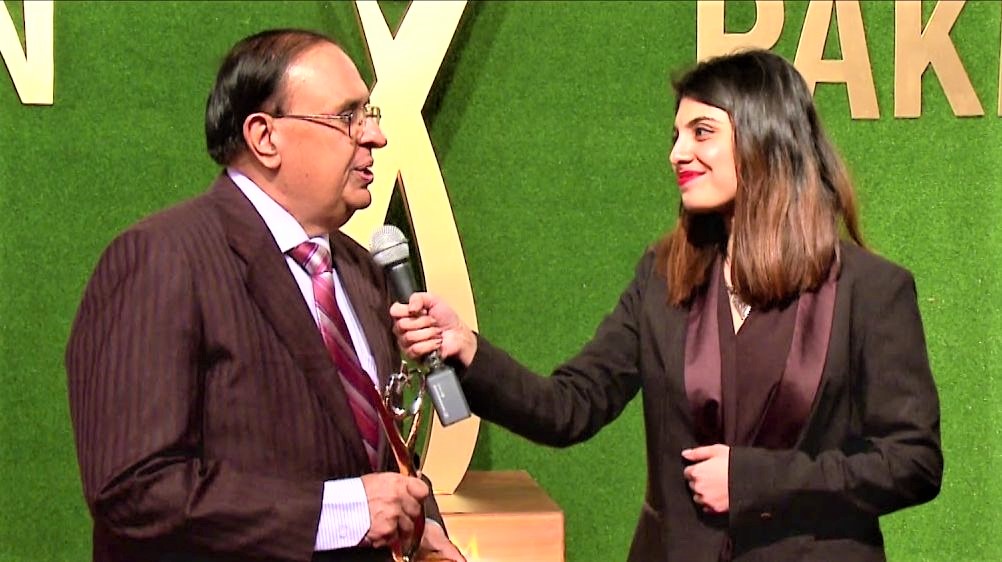
Atta-Ur-Rahman is a expert in the field of steady item science in South Asia, with more than 1080 logical distributions in the field of Organic science, 37 licenses, including 221 books composed or altered by him, distributed generally in USA and Europe. He fills in as the Editor in Chief of a few friend audited diaries including the Current Medicinal Chemistry and the Current Organic Chemistry. He has been a Fellow of the Royal Society since July 2006 and has filled in as the President of Pakistan Academy of Sciences.
Atta ur Rahman’s Education:
Atta-Ur-Rahman was born on 22 September 1942 in Delhi, British India (India) into a Urdu-talking scholarly family. His grandfather, Sir Abdul Rahman, was a bad custom leader of the University of Delhi (1934–38) who quickly filled in as an adjudicator at the Madras High Court. In 1946, Sir Abdur Rahman had delegated as bad habit chancellor of the Punjab University in Lahore, in the end migrating his family there, a year prior to the Partition of India occurred. Sir Abdur Rahman inevitably climbed as a Senior Justice at the Supreme Court of Pakistan in 1949. His father, Jamil-Ur-Rahman, was a allowed guide who set up a physical industry in Karachi, Sindh. Atta-Ur-Rahman was a splendid understudy at school. In the wake of getting comfortable Karachi in 1952, he dominated in passing the serious O-Level and A-Level from the Karachi Grammar School and joined Karachi University [1].
Going to Karachi University in 1960, Rahman graduated with a four-year college education (with distinction) in Chemistry in 1964, with degree fixation in regular items. He got a Master of Science (MSc) in usual science in 1965, and made a People Allowance for doctoral inspections in the United Kingdom. Also, Rahman had met with the honoris causa by dissimilar basics including the Bradford University (in 2010); the Asian Institute of Technology (in 2010); and the University Technology MARA (in 2011) [1].
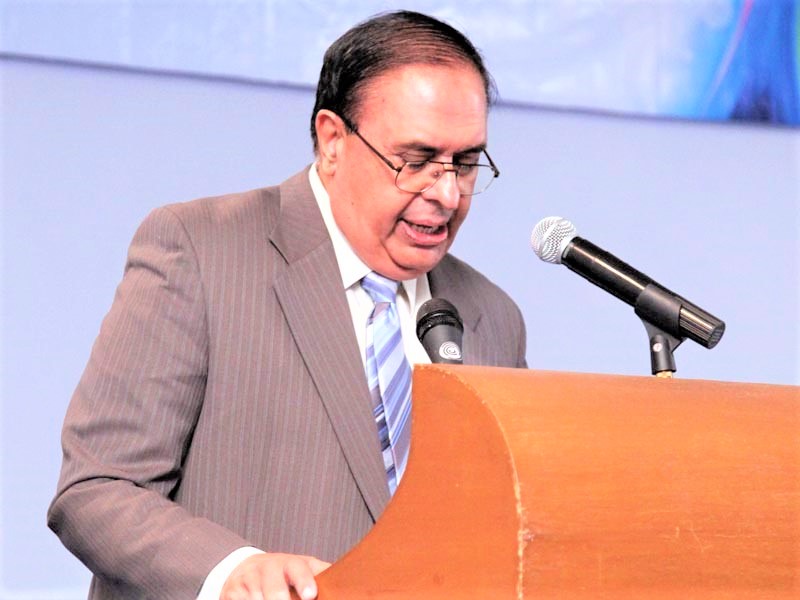
- Sc.D. from Cambridge University (1987)
- DSc. from Sir Syed University (2003)
- Sc. from Gomal University (2004)
- Sc.D. from Karachi University (2005)
- Ed.D. from Coventry University (2007)
- Sc.D. from Bradford University (2010)
- DSc. from Asian Institute of Technology (2010)
- DSc. from Universiti Teknologi (2011)
Scholastic Vocation:
In 1964, Rahman combined the Karachi University as a orator in undergrad science. He remained related with the Cambridge University between 1969–73, and is by and by privileged Life Fellow at the King’s College of the Cambridge University. In 1977, he turned into the appointee overseer of the Hussain Ebrahim Jamal Research Institute of Chemistry at University of Karachi; inevitably he was rose as the Director in 1990. In 1979, Rahman did the post-doctoral inspection at the University of Tübingen. After getting back to Pakistan, he joined Karachi University where he addresses and educated science. He was delegated Professor Emeritus at University of Karachi forever [1].
In 2008, Rahman had designated as Patron-in-Chief of the International Center for Chemical and Biological Sciences (ICCBS). In 2011, Rahman was complete emeritus teacher of science at the University of Karachi. Within excess of 1052 global distributions, including 210 books and 37 worldwide licenses. He has the differentiation of being the main researcher to be chosen Fellow of Royal Society (London) in 2006 in acknowledgment of exploration commitments did inside a nation in the Islamic world. He is likewise the main researcher from the Muslim world to have been granted the UNESCO Science Prize (1999) [1].
International Praise:
Since the HEC’s changes have been done in 2002. HEC has gotten acclaim from the global advanced education onlookers. Prof. Atta-Rahman, establishing Chairman of HEC, had got number of renowned global honors for the striking change of the advanced education area under his initiative. German scholarly, Dr. Wolfgang Voelter of Tübingen University in Germany diagramed the display of HEC under the expert of Prof. Atta-ur-Rahman and showed the deviations in HEC as “A supernatural occurrence occurred.” After instructing and visiting in 15 colleges of Pakistan, Voelter composed that the “situation of training, science and novelty in Pakistan has different meaningfully, as at no other time through the entire life of the nation.
The decision-making of the Council Stand-up Committee on Instruction as of late stated the initial 6 years of HEC under Prof. Atta-Ur-Rahman as “Pakistan’s brilliant period in advanced education”. As of late Thomson Reuters in an independent assessment of Pakistan’s progress in global supplies has recognized that in the most recent decade there has been a fourfold increment in worldwide distributions and a ten times development in profoundly referred to papers, insights that were superior to the BRIC nations [1].
American scholarly Prof. Fred M. Hayward Commend:
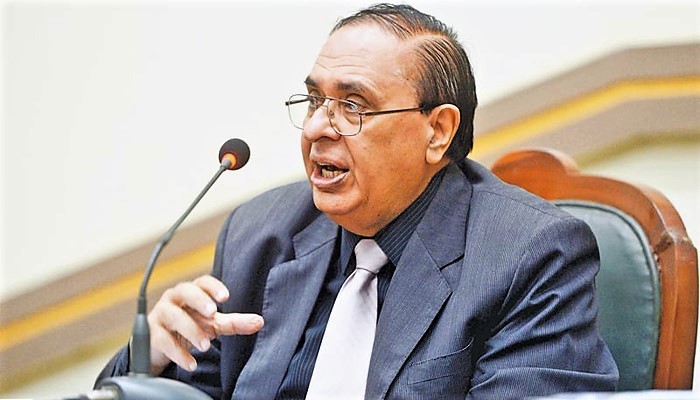
American scholarly Prof. Fred M. Hayward has additionally commended the change cycle embraced by Pakistan, conceding that “since 2002, various uncommon changes have occurred.” Hayward pointed out that “in the course of the most recent six years right around 4,000 researchers have taken an interest in PhD programs in Pakistan in which in excess of 600 understudies have concentrated in unfamiliar PhD programs.”
The HEC recognized important repairs for rational labs, restoring existing instructive offices, growing the exploration uphold, and administering the improvement of a standout amongst other advanced libraries in the locale. Trying to satisfying the worldwide guideline, a quality affirmation and accreditation measure was likewise settled, of which, ~95% of understudies sent to another country for preparing restored, a surprisingly high outcome for a creating nation because of improved pay rates and working conditions at colleges just as holding and exacting development by the commission, Fulbright, and others [1].
Composition of Bools and Articles:
Nature, a main science diary, has likewise composed various publications and articles about the change achieved in Pakistan in the advanced education area under the HEC. In an article named “Pakistan Threat to Indian Science” distributed in the main day by day paper Hindustan Times, India, it has accounted for that Prof. C. N. R. Rao, Chairman of the Indian Prime Minister’s Scientific Advisory Council made an introduction to the Indian Prime Minister at the quick advancement made by Pakistan in the advanced education area under the administration of Prof. Atta-ur-Rahman, Chairman, Higher Education Commission.
It had accounted for that as aftereffect of the changes achieved in Pakistan ” Pakistan may before long join China in giving India genuine rivalry in science”. “Science is a worthwhile calling in Pakistan. It has knowingly improved the salary taxes of its academics over the most recent couple of years.”. Prof. Atta-ur-Rahman gave offered the most notable public Award of the Republic of China in September 2014 for his promises to create solid linkages among Pakistan and China in different fields of advanced education, science and innovation. In 2016 he was chosen as Academician (Foreign Member) of Chinese Academy of Sciences, consequently turning into the principal researcher from the Islamic world to be gave this honor [1].
HAARP Research:
In 2010, Atta ur-Rahman spread his views that the United States government had funded a science investigate venture, the HAARP program, in Alaska that could influence the climate. Since 2003, Rahman quoted the European Union goal critical the USA for research on changing climate designs through HAARP just as the 12 worldwide licenses acquired in the field by the US supported HAARP action in Alaska Rahman has been in a scrap with Pervez Hoodbhoy, an nuclear physicist, who has severely scrutinized Rahman on the enormous accomplishments of Pakistan in advanced education during his residency as Chairman Higher training Commission with the status of a Federal Minister [1].
This started an argument when Pervez Hoodbhoy criticized the reduction of scholastic guidelines in Pakistan. The views on Hoodbhoy has clearly negated by impartial global specialists, Fred Hayward (US expert to USAID), Wolfgang Voelter (Tübingen University), and Michael Rode (Innsbruck University, Chairman of UN Commission on Science, Technology, and Development) who have glorified the notable change of the progressive teaching area in Pakistan under the administration of Atta-ur-Rahman. Various significant global prizes and grants have additionally been won by Atta-ur-Rahman in acknowledgment of these commitments Atta-ur-Rahman has therefore explained that he didn’t express that HAARP could cause seismic earthquakes yet he referred to the European Union area that faulted the US-financed research on HAARP which strength change climate designs and on which 12 US licenses had been gotten [1].
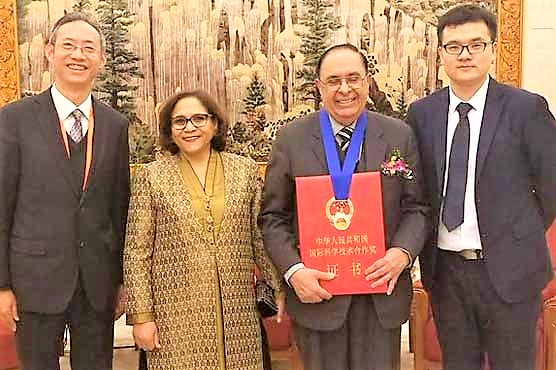
Atta ur Rahman’s Different Positions:
After getting education from different organizations he got different Positions at Private and Govt organizations [1].
- Individual, King’s College, Cambridge University (1969–1973, 2007-forever)
- Teacher at H.E.J. Exploration Institute of Chemistry at Karachi University
- Teacher Emeritus at H.E.J. Exploration Institute of Chemistry at Karachi University (2012)
- Facilitator General of COMSTECH (1996–2012)
- Government Minister of Science and Technology (2000–2002)
- The Government Minister of Education (2002)
- Government Minister/Chairman, Higher Education Instruction, Pakistan (yielded due to govt issues) (2002–2008)
- Advice to the Prime Minister of Pakistan on Science and Technology (2002–2008)
- Privileged Life Fellow, King’s College, Cambridge University (2007–present)
- Part UNESCO High-Level Panel on Science and Technology for Development (2011–present)
- Part Board of Councils, Nation of Education, Vancouver, Canada (2010–present)
- Familiar National Professor International Middle for Organic and Biological Sciences at Karachi University (2011–forever)
- Educator Emeritus, University of Karachi (2011-forever)
- Sponsor in-Chief International Center for Chemical and Biological Sciences at the Karachi University (2009–present)
- Head Pakistan Academy of Sciences (2003-2006) (2011–2014)
- Chief Network of Academies of Sciences of Islamic Countries (NASIC) (2007–present)
- VP Academy of Sciences of Evolving Countries (TWAS) (2008–2011)
- Co-Chairman Science, Technology and Novelty Group of United Nations Financial Social Commission for Asia and Pacific (2016–present)
Government Work and Political Support:
In the wake of creation sure about the overtone of the Pakistan Academy of Sciences, Rahman had been junior with the Pakistan government about teaching and science subjects. From 1996 till 2012, Rahman served in the directorate of the Committee on Scientific and Technological Cooperation, speaking to Pakistan’s selection. In 1997, Rahman full in as the Coordinator-General of the Group of Islamic Collaboration’s (OIC) Group on Technical and Technological Cooperation (COMSTECH) that involved 57 Ministers of Science and Technology from 57 OIC part nations [1].
He joined the Ministry of Science and Technology (MoSci) as its priest, helping with drafting the official science strategy of the nation in 1999. In 2002, he had delegated as pastor of the Ministry of Education (MoEd) just as turning into the director of the Higher Education Commission (HEC) until leaving in 2008. Rahman filled in as the leader of the Pakistan Academy of Sciences for two non-successive terms; first from 2003 until 2006, and from 2010 until 2015 for a subsequent term.
Atta ur Rahman’s Direction and Innovation:
In 2012, Rahman used this situation by giving direction on science and innovation issues to the Pakistan government on various events. Rahman sharply scrutinized the supposed hydrogen-fueled vehicle created by Agha Waqar Ahmad. In a cross-country transmission joking with Abdul Qadeer Khan, Samar Mubarakmand, and Pervez Hoodbhoy, the projecting opposed against it and established that such growth was in an breach of the second law of thermodynamics just as the law of defense vigor. In 2016 Prof. Rahman was selected as Co-Chairman of a United Nations Group on Science, Technology, and Innovation covering the part nations of UNESCAP [1].
Rahman is similarly the prior VP of The World Academy of Sciences (TWAS), which he complete sure about in 2010. The Austrian government likewise respected him with its most elevated common honor (“Das Große Goldene Ehrenzeichen am Bande”, 2007) in acknowledgment of his prominent commitments [1].
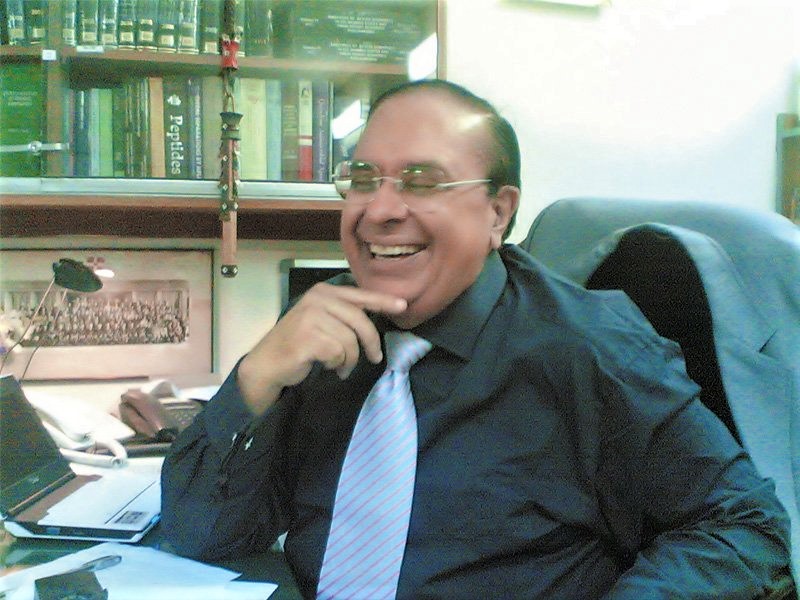
Respects and Grants:
Rahman is the most enhanced academic of Pakistan having gained four mutual respects from liberal governments including the most noteworthy public Civil Award of Nishan-I-Imtiaz. Rahman had selected as a Fellow of Royal Society (London) in July 2006 so getting one of the 4 scientists from the Muslim world to have ever won this integrity over the most recent 350 years when the Royal Society was set up, and the main scientist to be so recognized for explores carried out within an Islamic nation. His position on the radical race to the Royal Society examines “Atta-ur-Rahman has found an enormous number of normal items, a considerable lot of which have shown energizing organic exercises [1].
Awards:
He got awards from different organizations and Universities [1].
- Nishan-e-Imtiaz (2002) (most noteworthy public common honor)
- Hilal-e-Imtiaz (1998)
- Sitara-e-Imtiaz (1991)
- Tamgha-e-Imtiaz (1983)
- Babai Urdu Award (1994)
- First Pakistan Academy of Sciences-INFAQ Foundation Prize, Gold Medal (1996)
- Salimuzzaman Siddiqui Gold Medal (1995)
- Researcher of the Year Award (for 1985)/Prize Rs. 200,000 (1987)
- FPCCI Prize for Technological Innovation (1985)
- Open Gilded Medal of the Pakistan Academy of Sciences (1984)
- Gold Medal of the Pakistan Academy of Sciences (Under 40) (1977)
- Best Book Prize, Pakistan National Book Council, Government of Pakistan
- Engro Excellence Award (2010)
- HEC National Distinguished Professor (2011)
- Educator Emeritus University of Karachi (2011)
- Lifetime Achievement Award by University of Management and Technology, Lahore (2012)
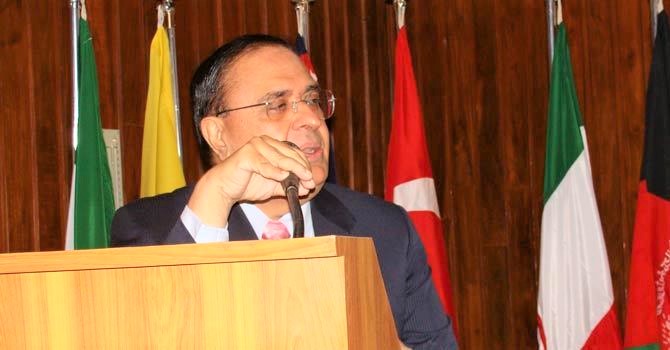
References:
- peoplepill. 12th OCtober 2020; Available from: https://peoplepill.com/people/atta-ur-rahman/
4 Replies to “Dr. Atta-ur-Rahman Pakistani researcher and Chemist”